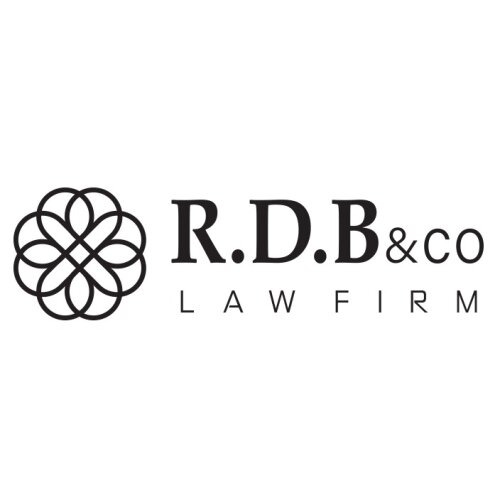Best Employment Rights Lawyers in Petaẖ Tiqwa
Share your needs with us, get contacted by law firms.
Free. Takes 2 min.
List of the best lawyers in Petaẖ Tiqwa, Israel
About Employment Rights Law in Petaẖ Tiqwa, Israel
Employment Rights Law in Petaẖ Tiqwa, Israel, is designed to protect the rights and interests of employees and employers. It covers a wide range of issues including working conditions, wages, termination procedures, discrimination, and workplace safety. The legal framework ensures that both parties adhere to a fair standard of practice, promoting a harmonious and productive working environment.
Why You May Need a Lawyer
There are several common situations where individuals might need legal assistance related to employment rights:
- Unfair Termination: If you believe you've been unjustly fired without proper cause or process.
- Discrimination and Harassment: Facing discrimination or harassment based on race, gender, age, or other protected characteristics.
- Wage Disputes: Issues relating to unpaid wages, overtime pay, or minimum wage violations.
- Workplace Safety: If your work environment is unsafe or you are facing health hazards.
- Contract Disputes: Disagreements over the terms and conditions of your employment contract.
- Retaliation: Experiencing negative consequences after reporting unlawful activities or unsafe working conditions.
Local Laws Overview
Key aspects of the local employment laws in Petaẖ Tiqwa include:
- Employment Contracts: Must outline roles, responsibilities, and compensation clearly.
- Minimum Wage: Adherence to national minimum wage standards.
- Working Hours: Regulations on maximum working hours per week and mandatory rest days.
- Overtime Pay: Specific rates for overtime hours worked.
- Notice Periods: Required notice periods for termination by either employer or employee.
- Equal Opportunities: Prohibitions against workplace discrimination and mandates for equal treatment.
- Health and Safety: Obligations for maintaining workplace safety and health standards.
Frequently Asked Questions
What should be included in my employment contract?
Your employment contract should include details of your role, salary, working hours, notice periods, and any other terms agreed upon between you and your employer.
How can I address unpaid wages?
If your employer has not paid you as agreed, you can first attempt to resolve the issue informally. If this fails, you may file a formal complaint with the Ministry of Labor or seek legal assistance.
What constitutes wrongful termination?
Wrongful termination occurs when an employee is fired without just cause or without following due process as outlined in the employment contract or labor laws.
Can I be fired for reporting unsafe working conditions?
No, it is illegal for an employer to retaliate against an employee for reporting unsafe or unhealthy working conditions.
Are there laws protecting me from workplace discrimination?
Yes, Israeli law prohibits discrimination based on race, gender, age, disability, and other protected characteristics in the workplace.
How is overtime pay calculated?
Overtime pay is usually calculated at a higher rate than regular working hours, often 125% to 150% of your regular pay, depending on the hours worked.
What are my rights regarding maternity leave?
Employees are entitled to maternity leave and can return to their job post-leave. The length and pay during maternity leave can vary and should be outlined in your contract.
Can my employer change my job description without my consent?
Significant changes to your job description require your agreement. Unilateral changes that significantly alter your role without your consent may constitute a breach of contract.
What is the procedure for filing a workplace harassment complaint?
You should report the harassment to your employer or the designated HR department. If unresolved, you can file a complaint with the Ministry of Labor or seek legal advice.
How can I ensure my working conditions meet safety standards?
Employers are required by law to provide a safe working environment. If you identify any hazards, report them to your employer. For persistent issues, contact the Ministry of Labor for further assistance.
Additional Resources
For more information on Employment Rights in Petaẖ Tiqwa, consider reaching out to the following organizations:
- Ministry of Labor, Social Affairs and Social Services
- The New Histadrut (General Federation of Labor in Israel)
- Legal Clinics at local universities
- Local non-profit organizations specializing in labor rights
Next Steps
If you are in need of legal assistance regarding Employment Rights in Petaẖ Tiqwa, follow these steps:
- Gather Documentation: Collect all relevant documents, including employment contracts, correspondence, and any evidence related to your issue.
- Research Information: Review local laws and resources available on employment rights.
- Consult a Lawyer: Contact a lawyer who specializes in employment law. Many offer an initial consultation to assess your case.
- File a Complaint: If needed, file a formal complaint with the Ministry of Labor or other relevant bodies.
- Know Your Rights: Be informed about your rights and responsibilities throughout the process to make empowered decisions.
Lawzana helps you find the best lawyers and law firms in Petaẖ Tiqwa through a curated and pre-screened list of qualified legal professionals. Our platform offers rankings and detailed profiles of attorneys and law firms, allowing you to compare based on practice areas, including Employment Rights, experience, and client feedback.
Each profile includes a description of the firm's areas of practice, client reviews, team members and partners, year of establishment, spoken languages, office locations, contact information, social media presence, and any published articles or resources. Most firms on our platform speak English and are experienced in both local and international legal matters.
Get a quote from top-rated law firms in Petaẖ Tiqwa, Israel — quickly, securely, and without unnecessary hassle.
Disclaimer:
The information provided on this page is for general informational purposes only and does not constitute legal advice. While we strive to ensure the accuracy and relevance of the content, legal information may change over time, and interpretations of the law can vary. You should always consult with a qualified legal professional for advice specific to your situation.
We disclaim all liability for actions taken or not taken based on the content of this page. If you believe any information is incorrect or outdated, please contact us, and we will review and update it where appropriate.











